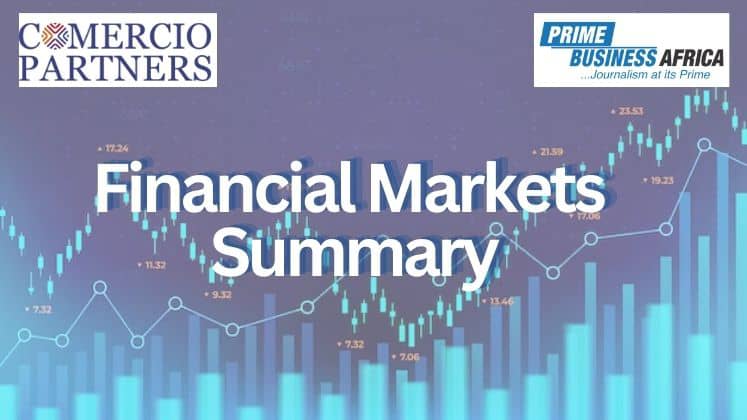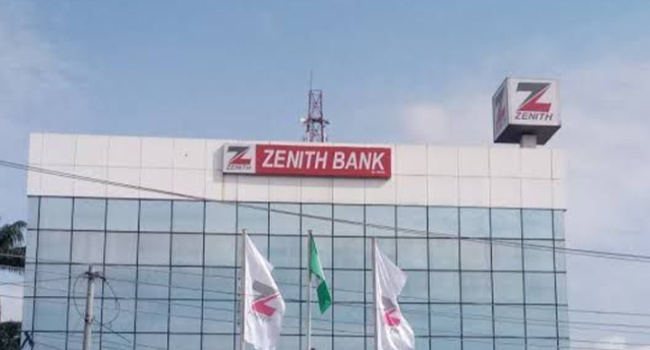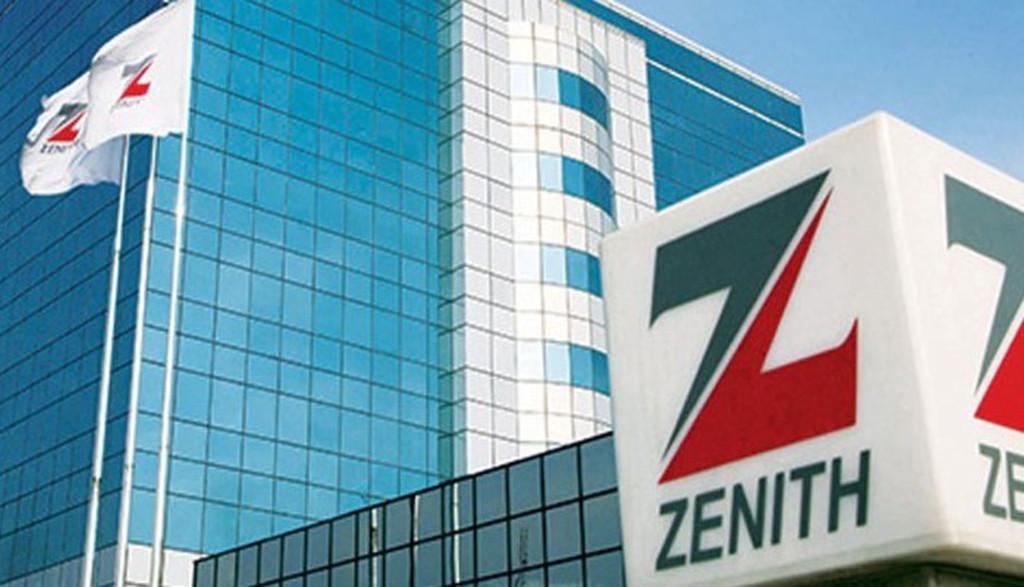Nigeria Borrows N7.71 Trillion In Q1 2024
The Debt Management Office (DMO) reported that Nigeria’s new borrowing in Q1 2024 was N7.71 trillion. This included N2.81 trillion from the N6.06 trillion domestic borrowing provided in the 2024 Appropriation Act and N4.90 trillion from the securitisation of N7.3 trillion Ways and Means Advances approved by the National Assembly. A DMO press statement titled “Explaining the Q1 2024 Public Debt Data” explained that the N24.33 trillion increase in total debt was due to a combination of new borrowing and naira devaluation.
The exchange rate depreciated from N899.39/$1 in Q4 2023 to N1,330.26/$1 in Q1 2024, a 32.39% decline, causing the naira value of external debt to rise sharply despite stable dollar-denominated debt. In Q1 2024, total public debt in naira terms was N121.67 trillion, up from N97.34 trillion in Q4 2023. The DMO clarified that the increase was due to N7.71 trillion in new borrowing and N16.62 trillion from naira devaluation. The agency emphasised the importance of understanding these dynamics and the impact of economic reforms on debt and service costs.
Join our WhatsApp ChannelEgypt Repays $25 Billion Debt In Fiscal Consolidation
Egypt has repaid $25 billion of its domestic and external public debt since March 2024, according to the Institute of International Finance (IIF). This repayment, representing 7% of Egypt’s GDP, underscores the country’s commitment to fiscal consolidation. The progress is attributed to a development deal with the UAE, which involved converting $11 billion of Emirati deposits at the Central Bank of Egypt into local currency investments and repaying $2 billion in Eurobonds. For the fiscal year 2024/2025, Egypt aims for a primary surplus of 3.5% of GDP, the highest since the pandemic. However, investors are cautious about this target’s sustainability, noting that a portion of the surplus is expected to come from the government’s Initial Public Offering (IPO) program. Despite this challenge, Egypt’s strategy includes using half of the IPO proceeds for debt reduction, reflecting its commitment to long-term financial stability.
In May, inflation reached its lowest annual rate in over three years, according to the FED’s preferred inflation gauge, PCE, as it better reflects changes in consumer behavior and longer-term inflation trends. The core personal consumption expenditures (PCE) price index increased by a seasonally adjusted 0.1% for the month and 2.6% from a year ago, down 0.2 percentage points from April, matching Dow Jones estimates. This marked the lowest annual rate since March 2021, when inflation first surpassed the Fed’s 2% target. Including food and energy, headline inflation remained flat for the month and rose 2.6% annually, in line with expectations. The Bureau of Economic Analysis report also showed that personal income rose by 0.5% in May, exceeding the 0.4% estimate, while consumer spending increased by 0.2%, below the 0.3% forecast. Prices were moderated by declines in goods (0.4%) and energy (2.1%), offsetting increases in services (0.2%) and food (0.1%). However, housing prices continued to rise by 0.4% for the fourth consecutive month, complicating the Fed’s efforts to reduce interest rates. Following the report, stock market futures were modestly positive, while Treasury yields were negative.
Money Market: Interbank Rate Falls Week-on-week
System liquidity began the week at a robust ₦951.51 billion but dropped to ₦498.42 billion by Friday due to outflows from bond auction and NTB PMA settlements. Despite this decline, interbank rates fell on a week-over-week basis, with the Open Buy Back (OBB) rate decreasing by 108 basis points to 24.17% and the Overnight (O/N) rate falling by 104 basis points to 25.00%.
We anticipate rates will inch slightly higher at the next session following the OMO PMA settlements.
Treasury Bills Market
The Treasury bills market started the week cautiously, anticipating the NTB PMA midweek. The DMO offered ₦228.71 billion, received ₦773.97 billion in subscriptions, and allotted ₦284.26 billion. Stop rates remained steady at 16.30% for the 91-day and 17.44% for the 182-day tenors, while the 365-day tenor saw a slight decrease of 18 bps to 20.68%. At the end of the week, the CBN held an OMO auction, offering ₦150 billion across three tenors and allotting ₦264.33 billion with a total subscription of ₦295.92 billion, all from the long end of the curve. The stop rate increased by 18.10 bps to 22.48%. Post-auction, mixed market activity, especially in the newly issued 1-year paper, led to a 9 bps rise in the average benchmark yield, which settled at 21.86%.
We anticipate a calm start to the next trading session.
READ ALSO: Financial Markets Week-end Summary – June 21, 2024
FGN Bond Market: Average Benchmark Yield Dips Marginally Closing The Week At 18.67%
The FGN Bonds market started the new week with a bonds auction. At the auction, the DMO offered ₦450 billion across the 2029, 2031, and 2033 maturities. The total subscription amounted to ₦305.25 billion, with ₦297 billion allotted at stop rates of 19.64%, 20.19%, and 21.50%, reflecting increases of 35 bps, 45 bps, and 161 bps from previous rates. Following this auction, the FGN bonds market traded cautiously in anticipation for the expected supplementary budget. Hence, the average benchmark yield dipped marginally by a basis point, closing the week at 18.67%.
We anticipate a continuation of this trend in the upcoming trading session.
Bearish FGN Eurobond Market
The FGN Eurobond market experienced bearish sentiments early in the week due to expectations of no rate cuts this year and a decline in US consumer sentiment, despite the latter closing higher than expected. The market was also influenced by the ongoing impact of the Ghana Eurobond restructuring plan. However, towards the end of the week, the market turned bullish, supported by US PCE prices closing as expected at 2.60%, down from the previous 2.80%. Hence, average benchmark yield dipped marginally by a basis point, closing the week at 9.93%.
We anticipate this trend to persist.
Currency Market: Naira Weakens To ₦1,505.30/$
The value of the Naira to the dollar weakened by 133 bps week-on-week to print at ₦1,505.30/$ this week at the Nigerian Autonomous Foreign Exchange Market Window (NAFEM).
Equities Market Goes Bullish
The local stock market showed a bullish trend in 2 out of 5 trading sessions this week, with the NGX All-Share Index increasing by 67 bps day-on-day and 32 bps week-on-week, closing at 100,057.49 points. This resulted in a year-to-date growth of 33.81% and a market capitalization rise of ₦0.171 trillion to ₦56.601 trillion. The weekly market breadth was 1.45x, with 48 stocks advancing and 33 declining.
On a week-over-week basis, overall trading volume decreased by 17.42% to 509.70 million units, and the total traded value dropped by 12.88% to ₦9.88 billion. The most actively traded stocks by volume were FBNH (674.59 million units), TRANSCORP (217.58 million units), and ACCESSCORP (139.53 million units). In terms of value, the top traded stocks were FBNH (₦14.41 billion), GTCO (₦5.99 billion), and GUINNESS (₦3.65 billion).
We expect a continued interest in fundamentally sound stocks.

















Follow Us